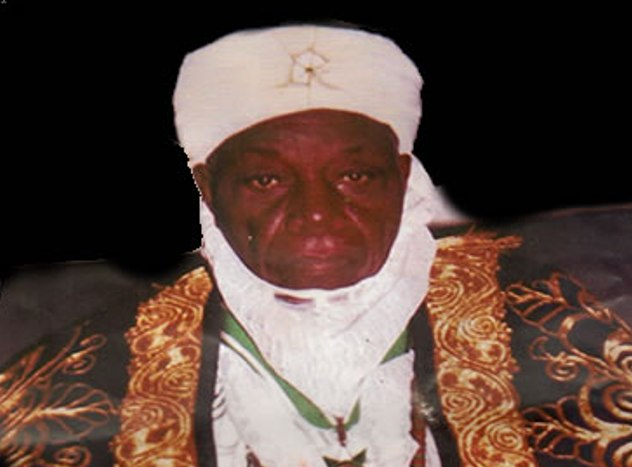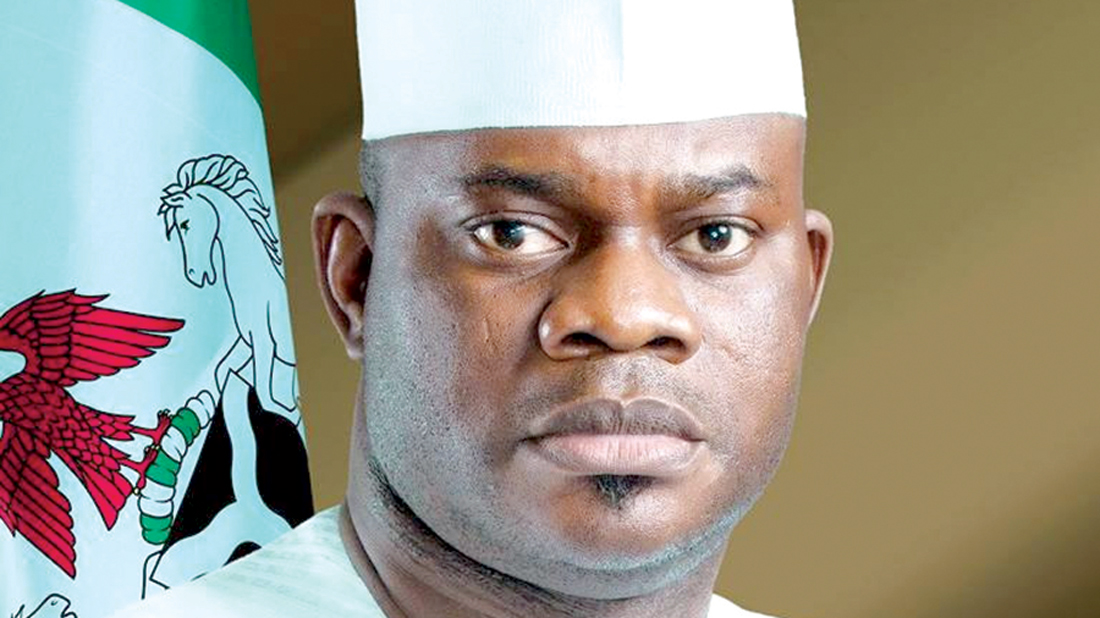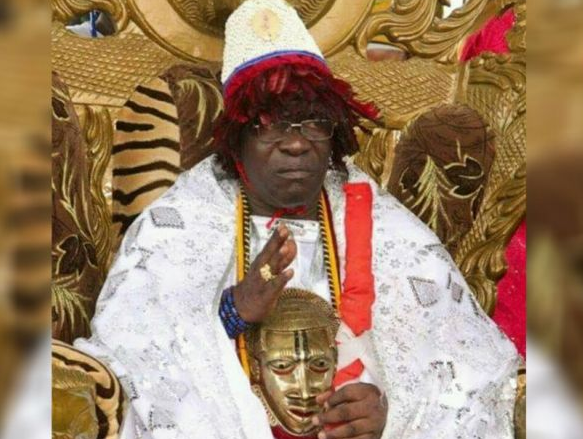An uneasy calm still permeates Idah, the city of the Attahs, eight months after Michael Ameh Oboni II went on a “hunting expedition.”
He journeyed into the wilderness in August, 2020, thereby creating a vacuum and consequent lull in the city and the kingdom at large.
In Idah, the palace road is now devoid of the hustle and bustle that characterized it when the paramount ruler was around, while the palace itself has lost its viva and is in a forlorn state as it still bears the tell-tale signs of mourning it was thrown into following the monarch’s unceremonious departure some months ago.
The roof of Odogo, an ancient square-shaped one-storey building, is still turned upside down. The upturning of the roof is the symbolic public announcement of the demise of an attah after which the funeral rites will begin. Hence that the roof is still in the state it was since August signifies that all the rites leading to the emergence a new attah are far from being begun.
Controversy mars selection of new attah
21st Century Chronicle reports that bureaucracy and interests have continued to stall what observers said was a “hitherto easy process of power rotation.”
“It is a sad development which will bring our hitherto revered race to ridicule and undermine our position among our peers in the country,” an elder, Ufaruna Okpanachi, lamented.
It was learnt that the late Achadu Oko Attah, Samson Ekele Adejoh, who is the prime minister of the kingdom, at the completion of the rites of passage of the attah, declared the stool vacant. This paved the way for the Aju’ Ameachor clan, the most senior of the four ruling clans of the Ayegba Oma Idoko royal dynasty and the next ruling house in line to immediately constitute a screening committee under the tutelage and guidance of the oldest person in the clan.
The other ruling houses are Aju- Akogu, Aju-Aku and Aju-Ocholi in that hierarchy and order. Nine princes have indicated interest to vie for the position, and by the time the clan met on Thursday, November 19, for the crucial exercise, it allegedly was unable to reach a middle ground.
However, as the meeting was going on, there were jubilations within the camp of Prince Samuel Opaluwa Oguche, one of the contenders, that he was unanimously nominated by the stakeholders and therefore the clan’s choice for the throne.
Amidst the uncertainty the development threw up, Oguche was said to have reached out to some interested parties within the clan, won them over and his name submitted to the kingmakers.
However, as the Aju’ Ameachor clan battled to resolve the stalemate over the matter, there were reports that the Achadu and the Etemahi, both first class chiefs with vital customary and legal roles to play in the emergence of an attah, had been allegedly receiving applications from princes from other clans for the position.
Among those whose applications were allegedly received are Usman Atodo- Aju Akogu clan; Igono Adaji- Aju Ameacho; Okoliko Opaluwa- Aju Ameacho; Ocholi Opaluwa- Aju Ameacho; Mathew Opaluwa – Aju Ameacho; Ekele Atodo- Aju Akogu; Samuel Opaluwa- Aju Ameacho; Adejoh Obaje,-Aju Akwu; Isah Achimugu- Aju Ameacho and Abdullahi Musa- Aju Akwu respectively.
21st Century Chronicle reports that the development generated an outcry from many observers who questioned the right of the Achadu and Etemahi to receive applications from other clans when it was the turn of the Aju’ Ameachor clan to produce the attah after it missed the opportunity 63 years ago.
“It is sad that what ought have been a simple process should be so compromised by politics and corruptly monetised,” Akwu Goodman, a prince of the kingdom, lamented. He also blamed the Aju’ Ameachor clan for leaving its flanks open for attack by other clans instead of coming out with a sole candidate.
How the process was distorted by colonialists
21st Century Chronicle learnt that it was the turn of Aju’ Ameachor to produce the attah in line with the zoning democratic system that existed since 15th AD before the British colonialists distorted the chronological process by choosing from the Aj’Akwu clan in the appointment of the late Dr Aliyu Obaje in 1958.

It was learnt that Opaluwa Oguche, the eldest son of Oguche Akpa from Aju Ameachor clan was nominated as the family’s choice and his name forwarded to the kingmakers for enthronement in 1958.
Oguche, it was gathered, went through all the drills and rigours of the rites of coronation and had crossed the final huddle and was ready for crowning when without warning the Colonial Government of the Northern Province in Kaduna turbaned a prince based in Zaria, late Aliyu Obaje, son of Obaje Ocheje from another ruling house.
Confusion was said to have reigned in the land as there was never such a precedence which the kingmakers considered an abomination but had no answer to the aberration
.
Even when the seat became vacant after the death of Obaje, and long after Opaluwa Oguche himself had died in 1974 after a long drawn but unsuccessful struggle to reclaim his throne, the Aju-Ameachor clan which hoped for restitution could still not ascend the throne as result of tradition and the succession law at the time which dictates that only the direct son of a previous attah could be coronated an attah.
Modification of Native Law and Customs
To redress this perceived injustice, the Kogi State Government under Governor Idris Wada amended the succession law and enacted the Igala Area Traditional Council ( Modification of Native Law and Customs) Order 2015. The new law provides for and invested grandsons in the male lineage of a previous attah with the right to ascend the throne, where there are no sons. Great grandsons could also be enthroned where there are no more grandsons. With the death of the Oboni II therefore, the throne finally falls on the lap of the Aju’ Ameachor clan to produce the successor.
Can a committee resolve the logjam?

Following the inability of the family to arrive at a consensus and the politics that marred the exercise, a committee was selected headed by the Ejeh of Ayingba and some members of the Igala Area Traditional Council to come up with the name of an acceptable candidate for the office. 21st Century Chronicle learnt that at its meeting penultimate week in Ayingba, the committee was unable to also reach an amicable consensus on the matter.
However, despite the optimism, many doubt if the committee’s report would scale the acceptability hurdles expected, especially with key stakeholders questioning its constitution from the very beginning.
Prince Goodman predicted that aggrieved parties were likely to petition the outcome on the ground that the committee could not perform the role of kingmakers and that its constitution in the first place was an aberration.
“And come to think of it, kingmakers do not select an attah, their responsibility is to present the family’s choice to the respective authority,” he noted.
He added that the role of the committee should have been advisory and not to be roped into accepting the tricky responsibility of selecting a successor.
Observers agreed that such postulations are likely to further stall and prolong the process which is already compounded by the death of Achadu at the coronation anniversary of the Ejeh of Ibaji, Samson Ekele, recently.









